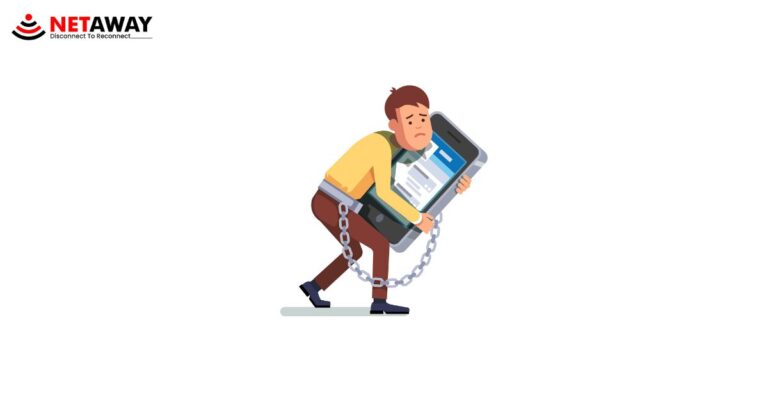
In today’s technology-driven world, the internet has become an integral part of our daily lives. While it offers incredible benefits and conveniences, there is a dark side to our excessive reliance on digital platforms. Internet addiction, also known as digital dependency, is a growing concern that can have profound effects on our well-being and quality of life. In this article, we will explore the signs and consequences of internet addiction, and most importantly, provide actionable steps to recognize and break free from this addictive cycle.
Recognizing Internet Addiction
Internet addiction is characterized by compulsive and excessive internet use, leading to negative consequences in various areas of life. Here are some common signs to watch out for:
1. Excessive preoccupation with the internet
Spending an increasing amount of time online, neglecting responsibilities, and losing track of time while engaging in online activities.
2. Failed attempts to cut back
Making unsuccessful attempts to reduce internet use or control the time spent online, experiencing restlessness or irritability when attempting to do so.
3. Withdrawal symptoms
Feeling anxious, moody, or depressed when unable to access the internet or experiencing a significant decrease in internet use.
4. Neglected offline activities
Neglecting hobbies, work, studies, or personal relationships due to excessive internet use.
5. Escaping from negative emotions:
Using the internet as a way to escape from or cope with feelings of stress, loneliness, or sadness.
Consequences of Internet Addiction
Internet addiction can have severe consequences on different aspects of our lives. It can negatively impact mental health, leading to symptoms of anxiety, depression, and social isolation. Additionally, excessive screen time can result in physical health issues such as poor sleep patterns, sedentary behavior, and eye strain.
Furthermore, internet addiction can strain personal relationships, as individuals may prioritize virtual interactions over real-world connections. Academic or professional performance may also suffer due to decreased focus, productivity, and increased procrastination.
Breaking Free from Internet Addiction
Recognizing and addressing internet addiction is crucial for reclaiming control over our lives. Here are actionable steps to break free from this cycle:
1. Acknowledge the problem
Recognize that you have an internet addiction and accept the need for change. Admitting the issue is the first step towards recovery.
2. Set goals and create a plan
Define specific, realistic goals for reducing internet use. Create a detailed plan outlining the steps you will take to accomplish those goals. Breaking down the process into manageable tasks can make it more achievable.
3. Identify triggers and create barriers
Reflect on situations, emotions, or activities that trigger excessive internet use. Implement strategies to create barriers or minimize exposure to these triggers. This can include disabling notifications, using website blockers, or setting time limits on certain applications.
4. Establish a healthy routine
Develop a structured daily routine that includes productive and enjoyable activities. Allocate specific time slots for tasks, hobbies, exercise, and social interactions, reducing the time available for excessive internet use.
5. Seek support
Share your intentions and progress with trusted friends, family, or a support group. Engage in discussions with others who are also trying to break free from internet addiction. Consider professional help or counseling if needed.
6. Practice self-care
Take care of your physical and mental well-being. Get sufficient sleep, engage in regular physical activity, practice relaxation techniques, and pursue hobbies or interests that do not involve the internet.
7. Create technology boundaries
Establish clear boundaries regarding the use of technology. Set limits on the amount of time spent online and designate specific periods for technology-free activities, such as meal times or before bedtime.
8. Find alternative activities
Discover alternative activities that bring you joy and fulfillment. Engage in hobbies, socialize with friends offline, read books, pursue creative endeavors, or explore new experiences. Redirect your energy towards meaningful endeavors.
9. Practice mindfulness
Cultivate mindfulness and self-awareness. Pay attention to your thoughts, emotions, and behaviors related to internet use. Practice techniques like meditation or deep breathing to stay present and focused.
10. Celebrate progress and be patient
Acknowledge and celebrate every milestone achieved in reducing internet use. Breaking free from internet addiction is a gradual process, so be patient with yourself and don’t get discouraged by setbacks.
Conclusion
Internet addiction is a real, serious problem that has an impact on millions of people worldwide. You can escape the grips of digital reliance by noticing the warning signals, comprehending the effects, and adopting proactive measures. Always keep in mind that the path to a better, more harmonious relationship with technology calls for dedication, introspection, and support. Accept the challenge, put your health first, and take back control of your life.
FAQs
Q1. What is internet addiction?
Internet addiction refers to compulsive and excessive use of the internet that negatively impacts one’s physical, mental, and social well-being.
Q2. How can I recognize if I have internet addiction?
Signs include preoccupation with the internet, increased time spent online, failed attempts to cut down, withdrawal symptoms, neglected relationships, and negative impact on mental health.
Q3. What are the consequences of internet addiction?
Consequences may include academic/work decline, sleep disturbances, physical health problems, impaired social skills, mental health disorders, financial issues, and strained relationships.
Q4. How can I address internet addiction?
Acknowledge the problem, set goals and boundaries, seek support from friends or professionals, replace unhealthy habits with healthier alternatives, practice self-care, use technology tools, and track progress.
Q5. When should I seek professional help for internet addiction?
Seek professional help if internet addiction significantly interferes with daily life, relationships, work, or mental well-being. Mental health professionals can provide assessments and tailored treatments such as therapy or support groups.
